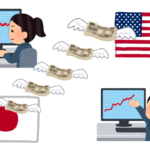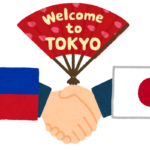
There are two main ways to make money in a capitalist society. One is to build wealth by starting and growing a business. The other is to invest your assets in stocks, bonds, real estate, and other assets to earn a profit.
To get a business off the ground and generate profits, it is necessary not only to have a certain amount of capital, knowledge, experience, and ideas, but also the cooperation of many people. Above all, the key to success or failure is to develop or create customers, in other words, to be accepted by the market. In addition, the ability to sustain the business is also necessary to achieve significant growth.
It takes strong will, hard work, and luck to meet these requirements. Therefore, it is not easy for an ordinary person to succeed in entrepreneurship.
On the other hand, anyone can invest as long as they have enough money. Of course, there are risks, but they are small compared to starting your own business, and as long as you invest in the right places, it is possible to increase your money to a certain extent.
Apart from speculation, such as aiming for short-term profits by repeatedly buying and selling, investing in stocks allows you to entrust your money to the future of the company and receive the fruits of your investment as a capitalist in the form of dividends.
If you own stock in a company that provides goods or services to consumers, you not only contribute to its profits by purchasing its goods or services, but you also receive a return on your investment, however small it may be.
So far I have bought and will continue to buy mutual fund products.
The reason I have not invested in stocks is that I needed a large amount of money to purchase them. The minimum purchase unit for Japanese stocks was only 1,000 shares until not long ago; it has only been possible to buy in units of 100 shares since October 2018.
For example, the minimum purchase price for Toyota stock is 216,300 yen. Uniqlo (Fast Retailing), for example, can only be purchased for 7,623,000 yen. In other words, you need a certain amount of money to buy Japanese stocks. And to diversify your investments, you need to have a lot of money.
In this regard, Philippine stocks can be purchased for as little as one share. Moreover, the price per share is cheap. For example, shares of the Ayala conglomerate cost 575 pesos, San Miguel 106 pesos, and BDO, a bank stock, 120 pesos.
Of course, to get a certain amount of dividends, you need to own a large number of shares.
I am considering purchasing Philippine stocks not only because of the low purchase threshold, but also because of the expected growth of the Philippine economy.
Another reason is that I would like to increase my children's financial literacy by showing them how to buy and manage stocks.
In a capitalist society, the gap between the haves and have-nots is widening.
In the Philippines, where the gap between the rich and the poor is even greater, knowledge about money is important to live without financial hardship in the future.
Unfortunately, my parents were not financially literate. Not necessarily because of that, but my financial literacy was low and still is not high. That is why I don't want my children to have the same difficulty.
Because of this, I bought Philippine stocks and hope to increase my financial literacy by learning as I go along and sharing my experience with my children.









